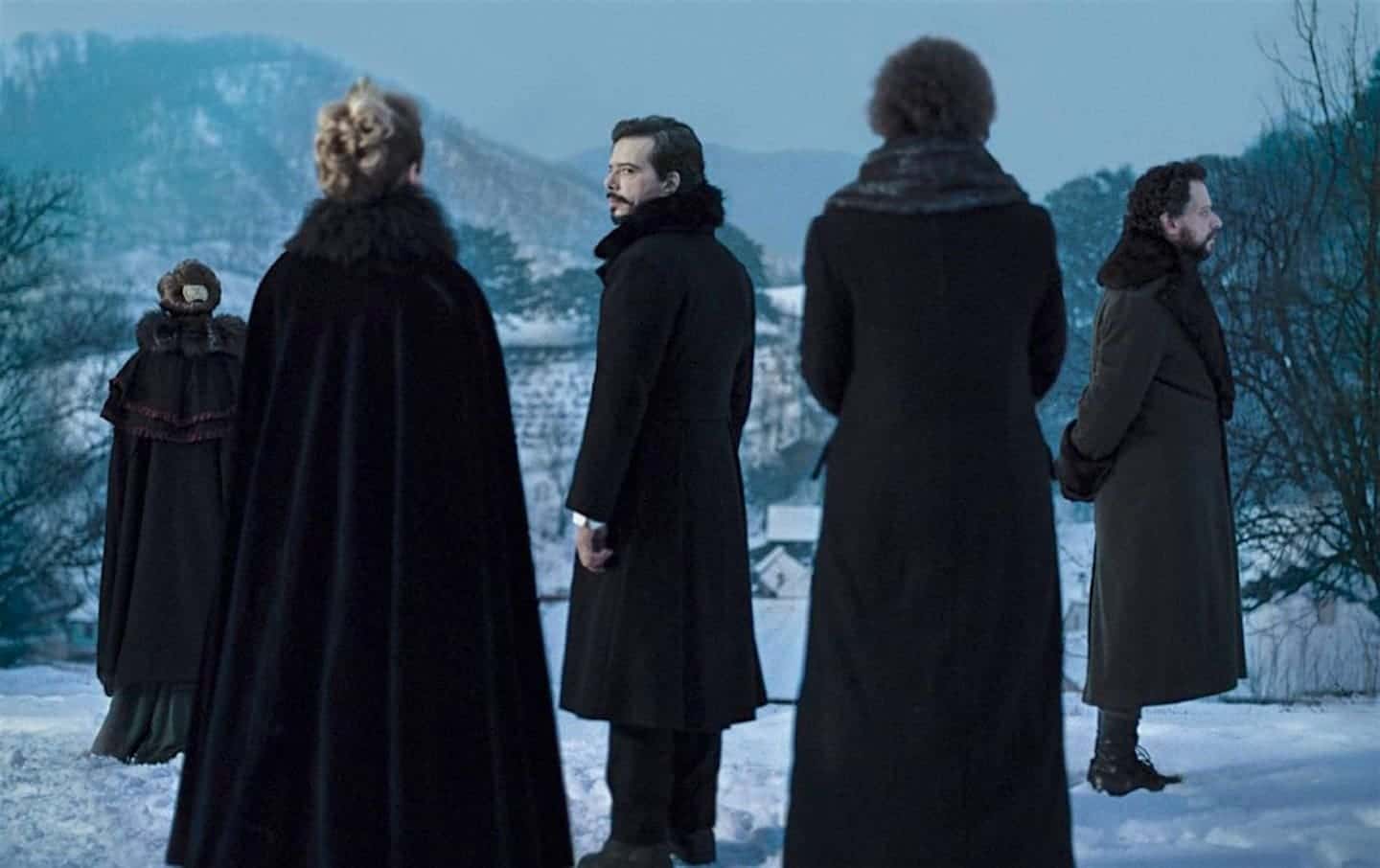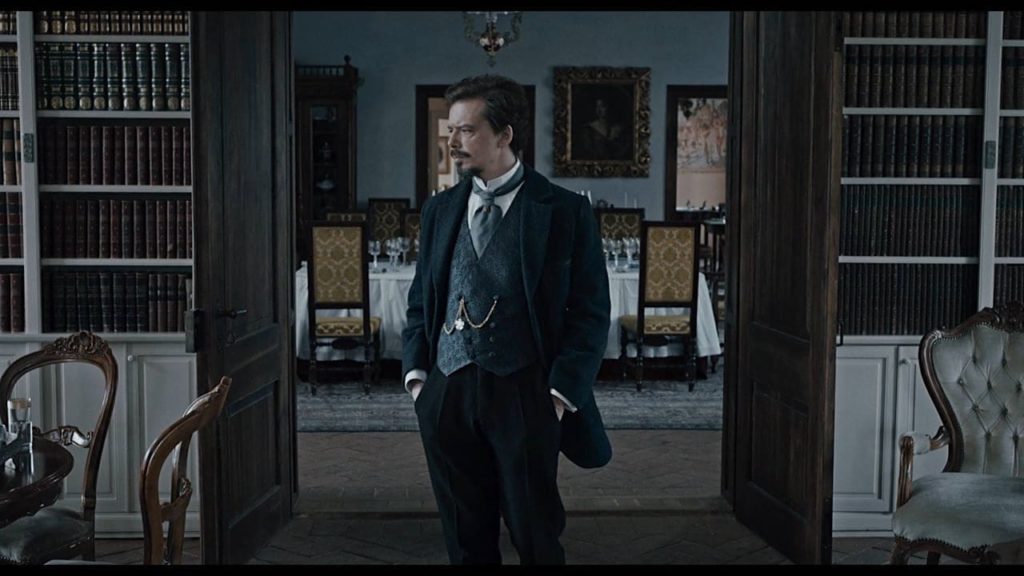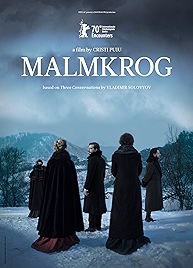Some films you can watch while you’re checking your email or skimming Twitter. Malmkrog (aka Manor House) is emphatically not one of those films. It requires your full attention, but rewards the focus if you’re interested in what it has to say. At 3hrs 21mins it’s a long film too, so gird your loins, put on the blinkers, quit the mail app and submit.
It’s divided into chapters, each one with the name of one of its five main protagonists, a gaggle of the Russian elite who we catch having a drink before lunch, eating lunch itself, taking afternoon tea, sitting down to dinner and then enjoying an after-dinner brandy. Tough life.
Around them bustle the servants, who bring drinks and take away dishes, a ramrod-straight crew. The servants don’t speak, but when they do it’s in a mouthed whisper, in German. Their social superiors talk in French, as the Russian nobility tended to before the Revolution, a reminder of the aphorism attributed to Prussia’s Frederick the Great: “I speak French to my ambassadors, English to my accountants, Italian to my mistress, Latin to my god, and German to my horse.”
The five are the piously Christian Olga (Marina Palii), the self-important ambassador Edouard (Ugo Broussot), the haughty Ingrida (Diana Sakalauskaité), the faintly sarcastic Madeleine (Agathe Bosch) and the suave, self-regarding Nikolai (Frédéric Schulz-Richard). Meanwhile, upstairs the elderly count is being lifted out of bed for a wash, dressed and put back in bed. He’s nearly dead but his exit from the world is designed to be as gentle as it’s possible to be.
The time is somewhere around the beginning of the 20th century – there is talk of the British having trouble in the Transvaal so the Boer War is clearly brewing – and we’re getting towards the end of the century of peace that ran from the Congress of Vienna in 1815 to the outbreak of the First World War. Europe’s time is ending, America’s has arrived. The elderly count upstairs can be seen as metaphorical, if that’s the way your mind runs.
The servants, too, at the beginning of this century of the masses, are fascinating. Silent but brutally efficient, they glide as if choreographed as they tend to the whims of this privileged crew prattling away about BIG topics in a manner that is just a touch self-conscious and self-important.
The talking never ceases. Militarism and conscription, the nobility of war, the perils of politeness, the place of Russia in Europe, good and evil, the nature of god, all get an extended airing, everyone having their say, but each one of the subjects of more importance to one speaker than the others.
They drink, they chat, the servants clear away, they drink, they chat, the servants clear away. Two events punctuate the rhythm. One is charming and situates us right in the moment, because suddenly carol singers turn up unannouced and we realise it is Christmas – not a word has been said about the time of year – and, yes, now we’ve been apprised of that fact, there is a Christmas tree in one of the rooms of this vast mansion, which might have been there the whole time.
The other event is massively spoilerish and entirely disruptive, and re-orients our attitude to the people in the film and everything they say. Violence is done, let’s just say.
And after that, another repast, the chat continuing as if nothing had happened at all.
It’s another superficially cool but subliminally torrid film by Cristi Puiu. His track record includes his dispassionate The Death of Mr Lazarescu and the entirely impassive crime thriller Aurora. Both long films, both films demanding total fixity of concentration.
Some clue as to what is going on can be found in the co-writer credit of Vladimir Solovyov, a Russian who died around the time this film is set and who objected to the philosophy of positivism (the world can only be experienced through the senses) preferring to qualify positivism with essentialism (intuition has a role to play too).
Given that we’re living in an age of real (the senses) news versus fake (intuition) news, Puiu is engaging with one of the wrangles of our day, albeit with the heat dialled down as far as he can take it.
I’m not going to pretend it isn’t tough going. The camera is largely static, there is very little aciton, Malmkrog could easily be a podcast, in fact. And yet it has a curious grip. The people in this film are not particularly nice or admirable people, but they are interesting, and the frame that Puiu puts them in – an old word order coming to an end – makes them doubly so.
Malmkrog – Watch it/buy it at Amazon
I am an Amazon affiliate
© Steve Morrissey 2021


